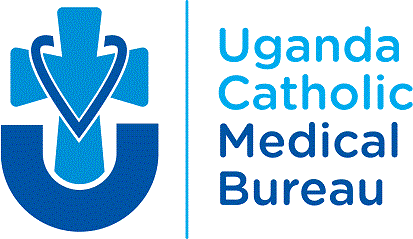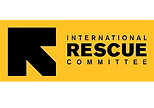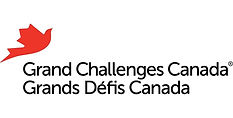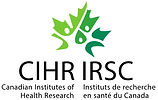
REConneCteD: Bridging Hospital and Community Care for Children in East Africa
Walimu, the KEMRI-Wellcome Trust, the Institute for Global Health at BC Children’s & Women’s Hospital (IGH-CW), the University of British Columbia (UBC), and BC Children’s Hospital Research Institute (BCCHRI), are excited to announce the launch of REConneCteD.
REConneCteD (Risk-Enhanced Community Care after Discharge) is a comprehensive 5-year (2025-2030) research initiative supported by Global Health EDCTP3 and its members.
ReConneCteD is part of the Smart Discharges Program, launched in 2011 with the support of many including:
The Challenge
When children in East Africa recover from serious infections and leave the hospital, their journey to full health is far from over. Many of these children face a dangerous period after discharge—they remain at high risk of becoming sick again or even dying due to recurring infections. Families face many barriers to caring for their child at home and are often left to navigate this high-risk period on their own, sometimes with devastating consequences. In fact, in East Africa, as many children die during the period after hospital discharge as during the initial hospitalization.
Addressing the gap between hospital and home care is increasingly recognized as crucial to improving child health globally, particularly in resource-limited settings. In these settings, primary care within the community is disconnected from hospital-based care. Families are often not aware of how to recognize recurrent infections or how to access care in their communities in a timely manner. Community health workers are also generally unaware of high-risk children coming home to their communities. These gaps lead to children falling through cracks in the health system.
.png)
The Solution: REConneCteD
REConneCteD (Risk-Enhanced Community Care after Discharge) is an innovative research program designed to address this critical gap. The program will connect hospital-based care with community health workers to create a safety net for vulnerable children during their recovery.
At the heart of REConneCteD is "Smart Discharges". Smart Discharges was initially developed by Walimu, the University of British Columbia, and the Institute for Global Health at BC Children’s & Women’s Hospital, and supported by Mining4Life and the BC Children’s Hospital Foundation since 2011. Smart Discharges uses rigorously validated models to assess each child's individual risk of death after leaving the hospital. You can think of Smart Discharges as a personalized risk assessment that helps doctors and nurses identify which children need the most intensive follow-up care.
Based on this risk assessment, families receive tailored counseling and personalized care plans before leaving the hospital. Rather than using a one-size-fits-all approach, the system ensures that children at highest risk receive the most attention and resources.

Connecting Hospital to Community
The program creates a digital bridge between hospitals and community health workers—trained local healthcare providers who work in villages and neighborhoods. When a child is discharged, their information and care plan are securely shared with community health workers through connected digital systems.
These community health workers can then monitor the child's recovery at home, provide ongoing support to families, and quickly refer children back to the hospital if danger signs of a recurring infection appear. This approach brings healthcare closer to where families live while maintaining connection to more advanced medical care when needed.
The Research Program
REConneCteD represents a comprehensive 5-year research initiative that will unfold in several phases:
Co-Design and Testing: Researchers will work closely with healthcare workers, families, and community members to refine the digital system. We will ensure it meets real-world needs and is easy to use.
Clinical Trial: We will rigorously evaluate whether the program improves outcomes for children and their families in 8 hospitals across Uganda and Kenya.
Economic Evaluation: We will assess whether REConneCted provides good value for money, examining both costs and health benefits to inform future healthcare investments.
Implementation Study: We will examine how well healthcare systems can adopt and sustain this approach in routine practice, identifying what support is needed for long-term success.
Expected Impact
REConneCteD aims to transform post-discharge care by making community health services more effective, reducing the burden on families who struggle to access follow-up care, and creating feedback loops that help hospitals improve their services. By connecting facility and community care through digital tools, the program seeks to ensure that no child falls through the cracks during the vulnerable period after hospitalization.
The initiative is funded by the European Union under Global Health EDCTP3, reflecting international commitment to addressing critical health challenges in resource-limited settings through innovative, evidence-based solutions. Views and opinions expressed are, however, those of the author(s) only and do not necessarily reflect those of Global Health EDCTP3 nor its members. Neither of the parties can be held responsible for them.
REConneCteD represents a new model for pediatric care that recognizes recovery doesn't end at the hospital door—it extends into communities where children and families live, supported by technology that connects all parts of the healthcare system.
Our Team
The REConneCteD team consists of experts from different fields, countries, and contexts. The University of British Columbia (Canada) serves as the project coordinator, overseeing overall project management and technology development. Walimu (Uganda) acts as the scientific lead, and Living Goods (Kenya and Uganda) oversees policy engagement and supports implementation efforts. The Kenya Medical Research Institute(KEMRI)/Wellcome Trust Programme (Kenya) contributes clinical research expertise and Brock University (Canada) contributes health economics research expertise.
Leadership Team
Nathan Kenya-Mugisha - Executive Director, Walimu; Former Director General Health Services, Uganda Ministry of Health
Matthew Wiens - Investigator, Institute for Global Health at BC Children’s & Women’s Hospital; Global Health & Innovations Lead, BC Children’s Hospital Research Institute; Assistant Professor, UBC Department of Anesthesia, Pharmacology, and Therapeutics
Mark Ansermino – Executive Medical Director, Institute for Global Health at BC Children’s & Women’s Hospital; Professor, UBC Department of Anesthesia, Pharmacology and Therapeutics
Bella Hwang – Director, Operations, Institute for Global Health at BC Children’s & Women’s Hospital
Jacquie Oliwa – Senior Researcher, KEMRI-Wellcome Trust Programme and Department of Public Health at the Institute of Tropical Medicine Antwerp
Juliet Waiswa – Senior Management, Living Goods
Asif Khowaja – Associate Professor, Brock University
Project Team
Clare Komugisha – Project Coordinator, Walimu
Haneen Amhaz – Project Coordinator, Institute for Global Health at BC Children’s & Women’s Hospital
Dustin Dunsmuir – Technical Lead, Institute for Global Health at BC Children’s & Women’s Hospital
Irene Mugenya – Research Medical Officer/Project Management, KEMRI-Wellcome Trust Programme
Douglas Mwesigwa – Finance & Operations Manager, Walimu
Raphael Roberto – Finance & Operations Coordinator, Institute for Global Health at BC Children’s & Women’s Hospital
Contact
For more information, please contact Haneen Amhaz or Matthew Wiens
Support and Thanks
The REConneCteD team gratefully acknowledges funding support from the European Union under Global Health EDCTP3. We also thank the partners and funders who contributed to the development of Smart Discharges, which forms the foundation of this work. Better discharge care is a team effort, and we would not be able to do this work without the dedication and support of all those involved in making Smart Discharges a reality.




.png)



%20(1).png)
.png)
.png)



.png)








